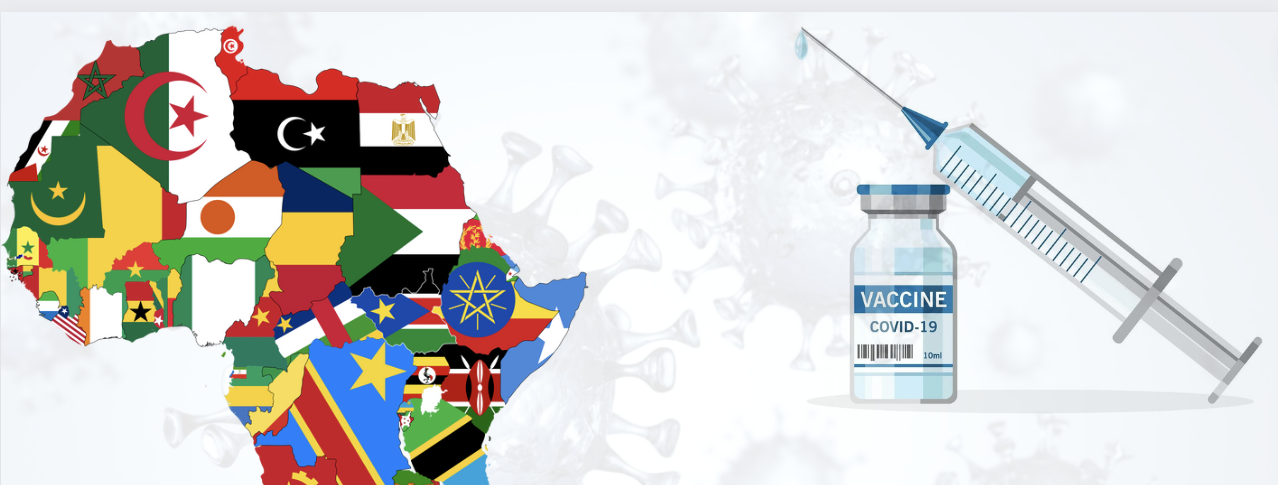In May 2023, the WHO announced that COVID-19 was no longer a global health emergency. But does this ring true for the African continent, especially given that the WHO’s announcement seemed to be premised on not just herd immunity but also fairly successful and swift vaccine deployment? As always, the data reveals all.
The first important point to note is that many countries are not monitoring COVID-19 as regularly as they did before. According to WHO data, only 9 African countries still monitor covid daily. However, this does not mean COVID-19 is over. There have been some COVID-19 outbreaks across the continent recorded in 2023. In June, the President of Uganda of contracted COVID-19; however, he continued his duties and only experienced only mild, flu-like symptoms. Morocco and Zambia recorded new cases in Africa this week. Nevertheless, this indicates that COVID-19 is becoming less of an emergency in Africa.
Partly this is because there has been great progress made in Africa’s vaccine coverage rate – although it is still below the world average of around 67%. Now, 52% of the continent’s eligible population has been fully vaccinated, which is just under the African Union’s target of 60%, up from just over 30% in May this year. Around half of African countries (28 countries) have fully vaccinated over 50% of their eligible population.
There is a discrepancy, though, in which countries have been the most successful vaccinators. Most of the continent’s top vaccinators are small island states or countries with relatively small populations under 20 million people, except Tanzania, with a population of over 60 million. These small countries include Sao Tome and Principe, Mauritius, Rwanda, Botswana, Seychelles, and more.
Only a few large African countries have met the African Union’s target of fully vaccinating at least 60% of their eligible populations: Ethiopia, Tanzania, and Morocco. But they have made good progress, and most are close to the target.
Another indication of progress is that the majority of African countries have fully opened their borders with limited covid-related trade restrictions. Only 42% of African countries still have trade restrictions in the form of requiring PCR tests, vaccine certificates, and quarantines for entering the country. This means that African governments are moving back to pre-pandemic conditions and are less scared of the pandemic’s impact on their countries.
So should we all breathe a big non-COVID-infected sigh of relief (excuse the pun)?
Yes and no. Yes, for all the reasons above, but also no, because there is still fairly low domestic vaccine production on the continent. Although there is substantial regional demand for vaccines valued at over US$1 billion annually, the continent only produces 1% of its vaccine needs, accounting for 0.1% of the global supply. 87.3% of covid vaccines currently on the continent came from abroad through bilateral agreements and the COVAX facility.
Only 5 countries in Africa currently produce covid vaccines, although 9 more intend to produce them in the near future. Most of these countries host several facilities. In 2022, there were 20 facilities producing or planning to produce covid vaccines, but this number has increased to 26 facilities in 2023.
Based on available estimates, by 2026, this means Africa could produce over 6 billion doses of covid-19 vaccines, which would be positive both for health sovereignty as well as creating jobs and economic growth. Furthermore, these facilities are likely to produce vaccines beyond just COVID-19 vaccines. Indeed, Africa’s ambition to decrease vaccine import dependence aligns with the African Union’s objective of producing 60% of the continent’s vaccine needs by 2040.
However, a major challenge is that these vaccines are not (yet) embedded in local or global supply chains, although there has been some progress on this. For instance, in September 2022, India’s Serum Institute, a GAVI partner, signed a deal with Aspen South Africa to manufacture and sell four Aspen-branded vaccines for Africa in an effort to utilise its near-idle COVID-19 vaccine production lines in South Africa.
However, in 2022, African Union Heads of State and Government called for GAVI, the UN, and other significant global purchasers of vaccines for aid and other programs to commit to ensuring 30% of their vaccines purchased are locally manufactured in Africa. This still needs to happen!
Delivering on this call, as well as regional initiatives such as the Partnership for African Vaccine Manufacturing (PAVM) which aim to coordinate regional hubs for vaccine manufacturing, will also avoid the perception or outcome that African countries have “too many” vaccine facilities.
To understand and review the data for yourself, have a read of our graphic below.
 This data was collated and analysed from several sources, such as the Africa CDC website, the WHO Global Trends, PERC’s COVID-19 Africa Hotspot Dashboard, Clinton Global Health Initiative reports, as well as multiple government and media releases.
This data was collated and analysed from several sources, such as the Africa CDC website, the WHO Global Trends, PERC’s COVID-19 Africa Hotspot Dashboard, Clinton Global Health Initiative reports, as well as multiple government and media releases.
Special thanks go to Sena Voncujovi, Leslie Mudimu, Rugare Mukanganga, Kofi Owusu-Koranteng, and Anuja Sankhe for their work on the graphics, collating/analyzing the underlying data and the preparation of this accompanying article.
If you spot any gaps or have any enquiries, please send your feedback to us at interns@developmentreimagined.com and we will aim to respond ASAP!
July 2023


